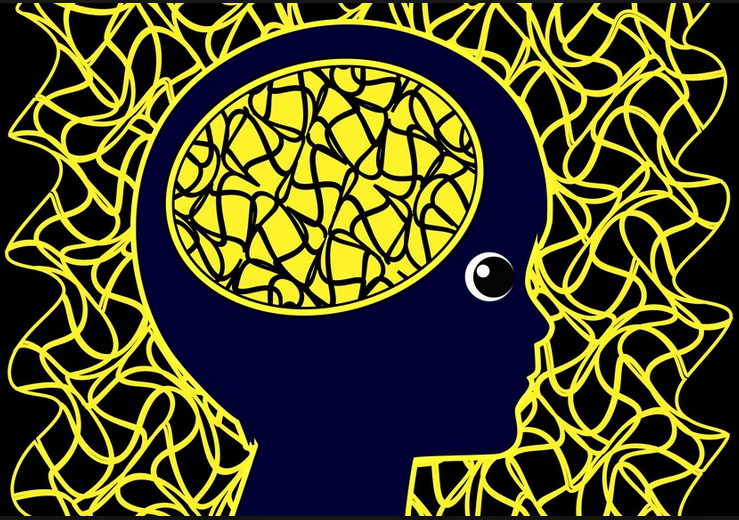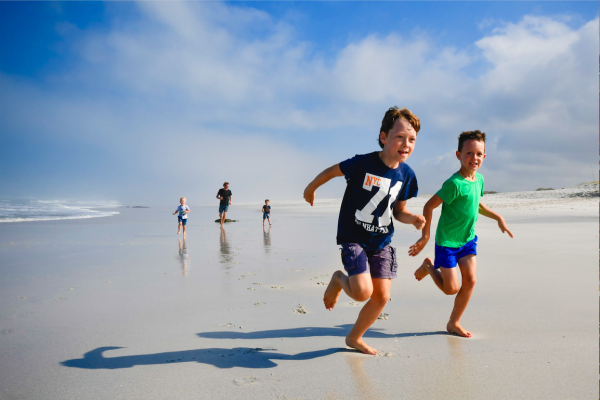
The astonishing scientific connection between love, parenting, brain development, education and poverty.
The other day a perfect stranger helped me understand the astonishing scientific connection between love, parenting, brain development, education and poverty.
And what it means for parenting my kids to greatness, and helping the most vulnerable in our country.
I was MCing an event where critical development-based research was being released when an elderly man approached me.
I hear you are a spiritual leader. You no doubt talk about love. But do you know why love is so important, especially in parenting? And exactly how to do it?
Not sure who this man was, and suspecting I was walking into a trap, I gingerly smiled and said, I’m not sure what you’re getting at.
A riveting 10-minute monologue ensued.
Before I get to the rest of what he said, some quick background: Twice before I have randomly bumped into someone somewhere who spouted forth such parenting profundity that I wrote a blog on what they said (see here and here). Within minutes of chatting to this man, I realized he was number three.
Rob is his name. (I never got his surname.) Lean, enthusiastic, 6 foot, white-haired, bespectacled. I guess he was about 60.
He proceeded to tell me that he had started his life in New Zealand as a dairy farmer, but had relocated to South Africa 40 years ago after falling in love with a South African woman. He had studied biology with an application to animal breeding and dairy production, but in recent decades (after the age of 50 I calculate) decided to study Sociology.
He told me how two defining moments led him into this late-in-life career change.
First, there was a scientific question that came upon him. He noticed one day that calves who had been neglected by their mothers tended to produce far less milk when they came of age. The endlessly inquiring man that he is, he wondered how much application this simple trajectory had to parent-child relationships in humans. He told himself he would one day study this.
Second, a tragedy befell him. When his kids were 9 and 13, his wife died in a car crash. He had been a fairly career-driven man, and realized immediately that he was not ready to parent these kids. His bond with them was quite weak compared to the bond they had enjoyed with their mom (his deceased wife). He had no idea how to give them emotionally what their mother had been giving them all these years. Though he loved his kids, he admitted that he had no idea how to make sure that they could feel his love.
So, in the midst of all the grief and new workload on his life, he did what most men would NOT have done, and this is when I really started leaning in …
He joined his wife’s book club.
It comprised older women who had been mentors to his own wife. He went with one goal in mind: to learn from them how to really love his kids.
He was not disappointed.
Years later, he got round to studying Sociology at UCT. And there, what the older women had taught him years before, and what he discovered during his years as a dairy farmer, converged with his own research. It all pointed to the same thing: the irreplaceable importance of love in a child’s life.
Rob continued to tell me how, studying in UCT, he was given 5000 data sets of young adults in the Western Cape. His enthusiasm at this point made it sound like he had been entrusted with some special key that would unlock the next breakthrough in the human race.
His task was to process the data and try discern links between their childhood experiences and their educational achievements later in life.
This research led a breakthrough insight of sorts, he elucidated, because the prevailing academic opinion at the time was that poor children will not go far educationally, while those from resourced families will. And the reason – everyone believed – was a lack of opportunity. But in fact, he claimed, it was a lack of something else.
What’s that? I said.
Love!
Why love is so critical for the infant
He explained, Neuroscience has revealed that most of the wiring of the brain happens in the first 2 years of life. The basic operating system is put in place for life in those first 1000 days.
Children who feel consistently loved by a parent or primary caregiver seem to develop a neuro-circuitry that wires them toward long-sighted achievement in the coming decades. In contrast, children who don’t will have a neuro-circuitry that biases them towards short-sighted survival.
In the one child’s brain, relationship-based hormones such as dopamine and oxytocin will carve out a riverbed that will continue to draw on these hormones. They will develop skills that help them connect and achieve for the long haul.
In the unluckier child’s brain, stress hormones like adrenaline will etch a deep ravine that will permanently stunt the brain. These children will develop skills to get through the day or week alive, but that’s it.
Two totally different brains, and two resulting skill sets and educational trajectories for life. The one will be able to capitalize greatly on educational and work opportunities, the other not.
Now if this is the first time you have heard this, it is worth stopping and taking a deep breath.
This is utterly devastating. What a tragedy and waste of human potential. To think that a person can struggle their whole life through no fault of their own.
It is also utterly clarifying. It clarifies how society can best heal the future.
As he spoke these words, my mind flashed to something Common Good, the NPO connected to the church I am part of, had told us two years ago. They had urged us as a church to find ways to serve young children in the nearby informal settlements by saying this…
The priority intervention by society and churches should be the first 1000 days of young lives, especially in under-resourced areas. For a simple reason: this is the time that nature provides for most of the brain’s foundational wiring. It’s plasticity is at an all time high, and after this the cement starts to dry rapidly.
Common Good also explained to us that there are four building blocks for the brain that a child needs in that time. If they receive it they will be able to excel in life, if they don’t, they will experience their entire life as perpetual struggle.
In that case, the gap between the two children will only widen as the years tick on. One child will take to reading easily, the other not – and from there on, it’s a downhill domino-reaction. The way you start is the biggest predictor to the path you take and ultimately, the way you will finish.
The four building blocks are, according to extensive research by Common Good:
- nutrition (providing basic brain food for the nascent child),
- safety, physically and emotionally,
- stimulation (adults consistently talking to and with the child) and
- love, which they said was the most important.
Rob’s research had led him to hone in on the last of these four ingredients.
The real crisis in our country, Rob extrapolated, is not poverty but parents who fail to make their children feel loved. The reason those parents fail to make their kids feel loved is because that’s the parenting they had received, and no one was teaching them otherwise.
Glistening eyes, he asked me, Do you want a new South Africa?
Of course I do.
Then don’t try focus on only trying to fix the lack of opportunity inherent in poverty. Rather do all you can to equip and support parents in their parenting of children in the first 2 or 3 years of their life. Those loved kids will then have the neurological wherewith-all to climb out the poverty cycle. In twenty years time, the economy will rise significantly, and poverty will start to recede.
His speech ended. But I still had an unanswered question: You mentioned up front that you didn’t think I knew how to love.
How to love little kids (and all the people in your life)
It’s simple, he started to answer, then issued a disclaimer, But hardly anyone knows how to do it, and even if they do, they don’t do it consistently.
Pointing to his pinky, and then moving along all the fingers on his right hand, he listed them:
- One, appropriately touch them, hands on the shoulder for example, or hugs. Kids who are not affectionately loved cannot thrive.
- Two, have simple conversation and lots of it – talking, listening, talking, listening. Communication is the blood of loving relationship.
- Three, listen without interrupting or judgment, or thinking what you will say next.
- Four, engage with the use of your eyes and your body language. For example, don’t just listen with your ears.
- Five, encourage and affirm them with words. Affirmation is food for the soul, and the brain.
He explained that a parent / caregiver, or better yet two, who regularly did these five things for the youngest children, was granting them a brain-circuitry that would set them up for life.
To be honest, I had expected something more profound or academic in feel.
But on reflection I realize that the profoundest insights are so obvious that we often overlook them. Or we know them but fail to do them.
Come to think of it, these five things are the very things that not just my kids, but my marriage (and all relationships I guess) need to thrive. I doubt it’s a co-incidence that when Julie expresses frustration with me, she mentions an absence of one or more of those five things.
I had one more question: How are your kids doing?
Oh, thanks for asking. He gave his first ear-to-ear smile. They’re very happy. And they have great careers. One is a Chemical Engineer and the other is an Actuary. Those book club ladies sure taught me how to really love my kids.
Comments
Also published on Medium.




